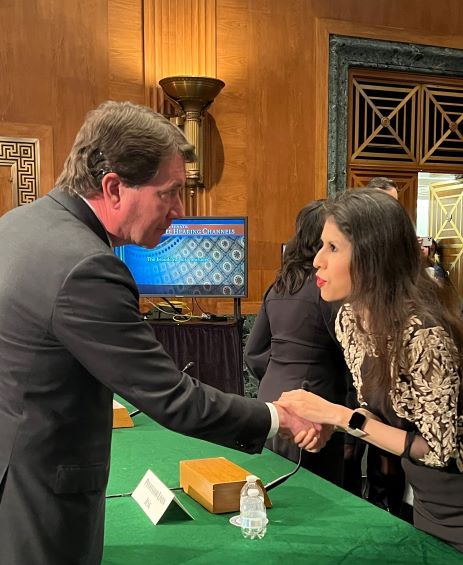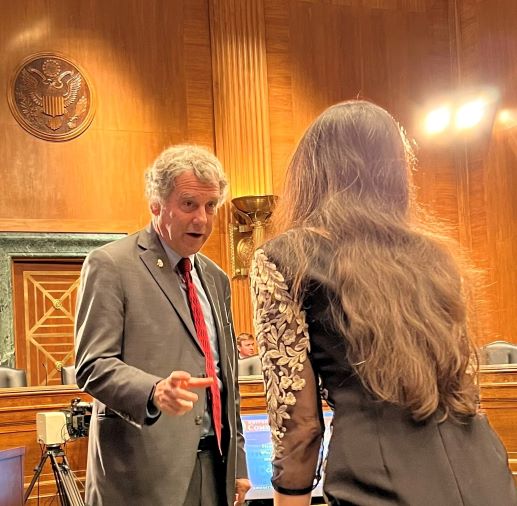Yesha Yadav, who holds the Milton R. Underwood Chair, was one of three financial regulation experts asked to testify in a full committee hearing before the U.S. Senate Committee on Banking, Housing and Urban Affairs Feb. 14. Here are the key takeaways from her testimony:

- Cryptocurrency is here to stay and involves a broad and diverse group of stakeholders that include crypto-customers, individual and institutional investors, professional traders and crypto-ventures. “Digital asset markets have become popular, sophisticated, institutionalized, financialized and interconnected,” Yadav stated, citing a 2022 JP Morgan Chase survey indicating that 15 percent of individuals in the U.S. were estimated to have transacted in crypto and a 2022 Charles Schwab survey indicating the crypto assets had proven to be especially appealing to minority Americans.
- The cryptocurrency market evolved rapidly and without any stable and clear guardrails to protect crypto-assets and cryptocurrency investors. Yadav emphasized that many cryptocurrency investors and exchange customers were unaware that the cryptocurrency market was not government-regulated, noting that 51 percent of Black Americans under age 40 surveyed by Charles Schwab in 2022 stated they thought crypto

Committee Chairman Sen. Sherrod Brown of Ohio greets Yadav after the hearing. was safe, and 41 percent believed the market was regulated by the government.
- Cryptocurrencies’ risks—technological, financial and legal—remain poorly understood by most investors. At the same time, crypto-exchanges “have built an easy on-ramp into cryptocurrencies for retail as well as institutional users,” Yadav testified.
- The urgent need for regulation that provides safeguards for cryptocurrency investors cannot be overstated. Developing a regulatory scheme now is a “bid to play catchup.” Cryptocurrency exchanges have grown in size, stature and organizational complexity, largely absent the guardrails that federal regulation would provide. This issue has been exacerbated by a debate among regulatory agencies about “what legal categories cryptocurrencies fall into.”
- The government can require cryptocurrency exchanges to work together to write rules governing custody, trading and sale of crypto-assets, and then operate as Self-Regulatory Organizations. “Such self-regulation is already codified in the law for securities and commodities exchanges. As SROs, crypto ventures would have to demonstrate their organization’s capacity to provide oversight,” Yadav testified. She also emphasized that “this proposal is not designed as a substitute for public regulation, but a complement that integrates into public regulation as similar arrangements do for securities and commodities markets.”
- As Self-Regulatory Organizations, the cryptocurrency industry should “assume the costs for its own self-protection,” Yadav stated. The role of government regulators would be to vet existing and new crypto firms to ensure they are capable of performing self-oversight.
Read Professor Yadav’s testimony to the Senate Banking Committee on the Crypto Crash.
In her conclusion, Yadav emphasized that “Establishing a mandate for self-regulation within the crypto-currency market will require careful, difficult work from federal regulators as well as prospective SROs.” But she recommends this approach to regulating cryptocurrency exchanges as by far the most expeditious and because “Opting into an SRO model gives the industry a chance to take advantage of this crisis to engage in reform, mature and innovate.”